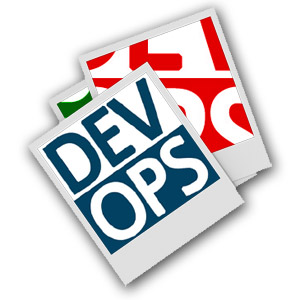 NEWS
NEWS
 NEWS
NEWS
 NEWS
NEWS
![]() With the vast arrays of platform, programming language, and technology choices available today, it can be very difficult for software developers to figure out where to best invest time in training skills. Most often the question asked is whether or not you should invest your time in a particular software/technology vs. another.
With the vast arrays of platform, programming language, and technology choices available today, it can be very difficult for software developers to figure out where to best invest time in training skills. Most often the question asked is whether or not you should invest your time in a particular software/technology vs. another.
With the opportunity and challenge of Big Data from new platforms such as Hadoop has opened a whole new range of analytics. As a result scenarios have arisen for programmatic approaches and expertise in SQL is one of them.
First, it’s important to note that SQL isn’t going anywhere. With the advancement of cloud computing, big data and big data analysis technology, SQL has withstood challenges in one form or another from other Relational Database Management Systems such as Oracle, branch movements such as MySQL, hybrids like the NoSQL movement and so on.
SQL skills are one of the most coveted mobile expertise. The demand for SQL skills is strongest across the breadth of information technology careers that includes the business analyst, web developer, data analyst, report writer, computer programmer or IT manager.
SQL: still in high demand!
In terms of skills that are in high demand for tech jobs, SQL is more popular than HTML, CSS, Linux, and AJAX. The demand has continued to rise since 2010. In fact, as per O’Reilly Radar report, the demand for SQL skills actually hit an all-time high in 2012 – a 6% increase over 2011 in the demand for those with SQL skills.
Many companies have been turning to SQL Server Reporting Services in order to manage their company data, and this has in turn created a high demand for database administrators and database developers with the needed skills. By allowing developers to insert query, adjust data and modify schema creation and data access control, SQL is also critical skill for healthcare IT.
Mobile computing is growing quickly, and is expected to continue, and SQL Server usage is on the rise as well. Both of these factors mean that SQL skills will continue to be in demand. The top jobs demanding proficiency in SQL include web developers, computer systems analysts, computer software (applications) engineers, computer programmers and database administrators. Additional skills that combine with SQL to make a job-seeker even more valuable include Java, software development, JavaScript, XML, RDBMS, UNIX, .NET and HTML.
But how do SQL developers go about keeping up on current techniques and trends in the SQL world?
SQL skills for today’s technology world
If you are just beginning to learning SQL, studying how to write simple SQL SELECT statements using the FROM, WHERE, GROUP BY, HAVING Clauses and learning logical and physical database design process is a good starting point. For advanced users, how to write complex SQL statements using Subqueries, UNION, JOINS, UPDATE, DELETE, INSERT statements and how to optimize your database stored procedures, indexes and queries probably be tested.
The enormous knowledge gap in accessing Big Data in Hadoop has prompted an avalanche of vendors to offer SQL-on-Hadoop solutions, which increase the accessibility of Hadoop and allow organizations to reuse their investment learning in SQL, stated by Gigaom research report. SQL is widely known by most business analysts. Many nontechnical staff without a programming background can write SQL and use traditional business intelligence (BI) tools like Tableau, MicroStrategy, and Business Objects to query data.
The core of SQL is the relational database. Basic SQL statements like SELECT, UPDATE with clauses like having and order by is required. Apart from that, JOINs are also frequently used in real-time. A good understanding of what some of the different performance implications are around inserts and updates, how indexing works for the various database platform, the ability to write a SQL statement and know when and how to write inner and outer join are other SQL skills that probably be tested.
The developer should want to refine and improve their DB data mining skill continuously. If you work in a company using intensively with SQL databases and big data technology, data warehousing concepts and applications, profiling DB queries, NoSql trends, performance optimization for existing queries, requirement changes and its impact on DB design are some essential new skills critical for these roles.
SQL is what’s next for Hadoop. SQL users should have access to the skills of integral data extraction, transformation, and loading (ETL) capabilities, online analytical processing (Olap), and business information reporting services. The increasing drive towards storing data on every customer interaction or transaction is also driving up the demand for data analysts, database developers who are beginning to use SQL database development, SQL query writing or SQL programming.
THANK YOU